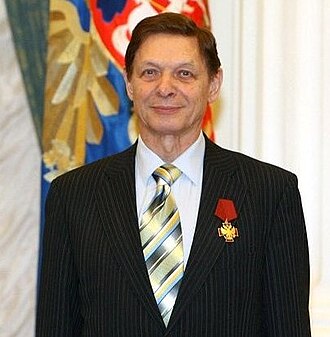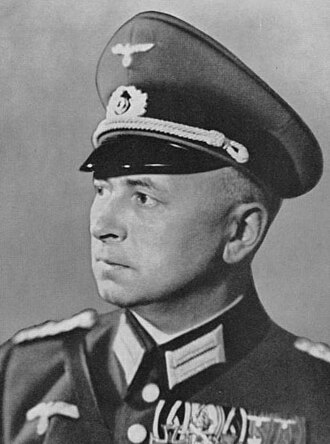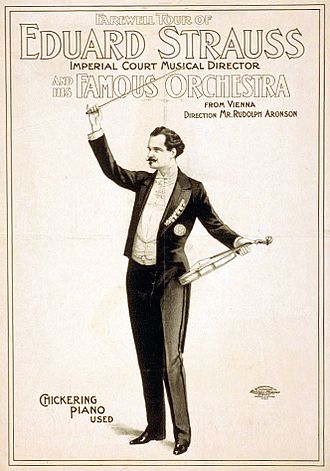Discover Your Roots
SIGN UPDiscover Your Roots
SIGN UPEduard is a male name of Romanian origin, meaning "Wealthy Guardian." It is also used in German, Czech, Slovak, Croatian, Dutch, Armenian, and Slavic cultures. The name reflects strength and prosperity, embodying the qualities of a guardian who is capable and financially secure. Eduard Model Accessories, a Czech manufacturer of plastic models and finescale model accessories, shares the same name. Established in 1989, the company initially produced photoetched brass model components and later expanded into plastic models. Their product line includes various aircraft kits, ranging from World War I to the present day, with a focus on quality and attention to detail. Eduard has gained recognition in the modeling community for its high-quality products, making it a prominent name in the field of model accessories.

Eduard Anatolyevich Khil, also known as Edward Hill, was a celebrated Russian baritone singer known internationally for his unique non-lexical vocable performance of the song "I Am Very Glad, As I Am Finally Returning Back Home." Born on September 4, 1934, in Smolensk, he overcame a challenging childhood during World War II and later pursued his passion for music. Khil's talents led him to win numerous awards, including the prestigious People's Artist of the RSFSR. He was recognized for his distinct singing style, characterized by a lyrical baritone, optimism, and humor. In his personal life, Khil shared a lasting marriage with ballerina Zoya Pravdina and had a son named Dmitri. Sadly, Eduard Anatolyevich Khil passed away on June 4, 2012, leaving behind a profound legacy in the music world. His contributions continue to be cherished, and his impact on Russian and global music culture remains significant.

Dr. Eduard Bloch (30 January 1872 – 1 June 1945) was an Austrian doctor known for being the family physician of Adolf Hitler in Linz until 1907. Despite being an Austrian Jew, Bloch was granted special protection by Hitler and allowed to emigrate to the United States following the German annexation of Austria in 1938. Born in Frauenberg (today Hluboká nad Vltavou, Czech Republic), Bloch studied medicine at Charles University in Prague and served as a medical officer in the Austrian army before opening a private practice in Linz. He is best known for treating Adolf Hitler and his mother, Klara, who suffered from breast cancer. Despite the family's financial struggles, Bloch often provided medical care at reduced or no cost, earning him the gratitude and reverence of Adolf Hitler. Following his emigration to the US, Bloch settled in New York City but was unable to continue practicing medicine due to the non-recognition of his Austrian medical degree. He passed away from stomach cancer in 1945, just a month after Hitler's death. Bloch's life and interactions with Hitler have been documented in various sources, shedding light on this unique historical relationship.

Eduard Wagner (1 April 1894 – 23 July 1944) was a German general who played a significant role in Nazi Germany's military operations during World War II. Born in Kirchenlamitz, Upper Franconia, he served in the Reichswehr after World War I and later became quartermaster-general from 1941 to 1944. Wagner was involved in the implementation of brutal policies, including the execution of hostages, harsh treatment of prisoners of war, and collaboration in the murder of Soviet Jews. He also advocated for the Siege of Leningrad and supported the invasion of Poland. However, as the war progressed, he became a conspirator against Hitler and was even involved in the failed assassination attempt on the dictator. Fearing arrest and potential forced implication of other plotters, Wagner tragically took his own life on 23 July 1944. Despite his controversial actions during the war, his role as a conspirator reflects a complex and tumultuous period in history.

Eduard "Edi" Strauss, born on March 15, 1835, was an Austrian composer who, along with his brothers Johann Strauss II and Josef Strauss, formed the renowned Strauss musical dynasty. Known for his individual style, Eduard was primarily recognized as a dance music conductor rather than a major composer in the Strauss family. His compositions, including the popular "Bahn Frei!", Op. 45, "Ausser Rand und Band", Op. 168, and "Ohne Bremse", Op. 238, were well-received. Despite rivalry from his brothers and other composers, Eduard's influence in the Viennese light music world was undeniable. He was married to Maria Klenkhart and had two sons, Johann Strauss III and Josef Eduard Strauss. Following personal setbacks and the disbandment of the Strauss Orchestra, Eduard Strauss retired from public life and passed away on December 28, 1916. His legacy lives on through his family memoirs and compositions. To this day, the Strauss Orchestra Archives continue to preserve the works of Eduard and the entire Strauss family.

Eduard is a male name with German and Dutch origins, derived from the English name Edward. Notable individuals with this name span various fields and periods of history. They include Eduard Buchner, a German chemist and zymologist; Eduard Einstein, the second son of physicist Albert Einstein; Eduard Shevardnadze, a Georgian politician and diplomat; Eduard Uspensky, a Soviet and Russian children's writer and poet; and Eduard von Simson, a German jurist and President of the German Parliament. Other prominent figures with the name Eduard encompass diverse professions such as musicians, athletes, politicians, and mathematicians, illustrating the widespread influence of individuals bearing this name across different domains.
All images displayed on this page are sourced from Wikipedia or Wikimedia Commons.We use these images under their respective Creative Commons or public domain licenses. Wherever applicable, author attributions and license information are provided. If you believe an image is used incorrectly or outside its license terms, please contact us so that we can review and correct the issue.